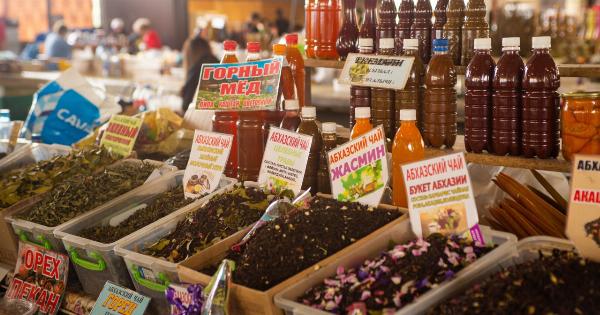Food poisoning is a common illness that occurs when you consume contaminated food or beverages. It can cause a range of unpleasant symptoms, including nausea, vomiting, diarrhea, abdominal pain, and fever.
While most cases of food poisoning are mild and resolve on their own within a few days, there are certain circumstances when it is important to seek medical attention. In this article, we will discuss when it is advisable to see a doctor if you suspect food poisoning.
Symptoms of Food Poisoning
Food poisoning symptoms typically develop shortly after consuming contaminated food, although the exact onset can vary depending on the type of bacteria, virus, or parasite involved. The most common symptoms of food poisoning include:.
- Nausea
- Vomiting
- Diarrhea
- Abdominal pain
- Fever
- Headache
- Muscle aches
- Weakness
If you experience these symptoms after consuming food from a questionable source or suspect contamination, it is crucial to pay attention to their severity and duration.
Mild Cases of Food Poisoning
In most cases, food poisoning is a self-limiting condition that resolves within a few days without medical intervention.
Mild cases of food poisoning can typically be managed at home with rest, proper hydration, and over-the-counter medications to alleviate symptoms such as nausea and diarrhea.
Ensure you drink plenty of fluids to prevent dehydration, especially if you are experiencing frequent episodes of vomiting or diarrhea.
Electrolyte solutions or sports drinks can help restore the body’s electrolyte balance lost due to excessive fluid loss.
If you have a mild case of food poisoning, you should start to feel better within 48 to 72 hours. If your symptoms worsen or persist beyond this timeframe, it may be a sign of a more severe infection.
When to Seek Medical Attention
While most cases of food poisoning resolve on their own, there are situations where seeking medical attention is important. If you experience any of the following symptoms, it is advisable to consult a healthcare professional:.
- Severe or prolonged diarrhea: If you have diarrhea that is persistent, bloody, or lasts for more than three days, it may indicate a more serious bacterial or parasitic infection that requires medical treatment.
- High fever: If your body temperature exceeds 101.5°F (38.6°C), it could be a sign that the infection has spread beyond the gastrointestinal tract and warrants medical evaluation.
- Dehydration: Excessive vomiting and diarrhea can lead to dehydration, especially in young children, older adults, and individuals with weakened immune systems. Signs of dehydration include excessive thirst, dry mouth, dark urine, lightheadedness, and reduced urine output.
- Severe abdominal pain: Intense and persistent abdominal pain could indicate a more severe infection or a complication, such as an intestinal blockage, and should be evaluated by a healthcare professional.
- Neurological symptoms: If you experience neurological symptoms, such as blurry vision, muscle weakness, tingling sensations, or difficulty speaking, it could suggest a severe case of food poisoning that requires immediate medical attention.
- Underlying health conditions: People with chronic illnesses, weakened immune systems, or pregnant women should seek medical advice if they suspect food poisoning, as they are more susceptible to severe infections and complications.
- Recent travels: If you have recently traveled to a foreign country and develop symptoms of food poisoning, it is essential to consult a doctor. Certain infections prevalent in other countries may require specific treatments to ensure a full recovery.
- Suspected contaminated food source: If you suspect that the source of your food poisoning is from a restaurant, food establishment, or a food product that others may consume, it is important to report it to the appropriate local health authorities so they can investigate and prevent further cases.
Diagnosing Food Poisoning
When you visit a doctor for suspected food poisoning, they will likely start by taking a detailed medical history and asking about the specific foods you consumed before the onset of symptoms.
This information will help identify potential pathogens or toxins that may be responsible for the illness.
In some cases, your doctor may request a stool sample for laboratory testing to determine the exact cause of the infection. This may involve identifying the presence of bacteria, viruses, or parasites in your stool.
Treatment for Food Poisoning
The treatment for food poisoning depends on the underlying cause and the severity of symptoms. In most cases, the primary focus of treatment is to manage symptoms and prevent complications. Treatment options may include:.
- Fluid replacement: Adequate hydration through oral rehydration solutions or, in severe cases, intravenous fluids may be necessary to prevent or treat dehydration.
- Antibiotics: Antibiotics are typically not prescribed for most cases of food poisoning, as they are ineffective against viral infections and can prolong the shedding of certain bacteria. However, in severe cases or when a specific bacterial cause is identified, antibiotic treatment may be necessary.
- Anti-nausea medications: These medications can help alleviate nausea and vomiting, providing relief and allowing for better fluid intake.
- Avoiding certain foods: During the recovery phase, it may be helpful to avoid certain types of foods, such as spicy or fatty foods, that can irritate the digestive system and worsen symptoms.
- Rest and proper nutrition: Getting plenty of rest and gradually reintroducing bland, easily digestible foods can support the healing process and restore your strength.
It is important to follow your doctor’s instructions and complete the full course of any prescribed medications to ensure a full recovery.
Additionally, practicing good food hygiene and safe food preparation techniques can help prevent future episodes of food poisoning.
Preventing Food Poisoning
While food poisoning can occur despite taking precautions, there are several steps you can take to reduce your risk:.
- Wash your hands thoroughly: Proper hand hygiene, including washing your hands with soap and water before handling food, can help prevent the spread of bacteria and viruses.
- Cook food thoroughly: Ensure that food, especially meat, poultry, and seafood, is cooked to the appropriate internal temperature to kill any harmful bacteria.
- Store food properly: Refrigerate perishable foods promptly and make sure to consume them before their expiration dates.
- Avoid cross-contamination: Keep raw meats separate from other foods and use separate cutting boards and utensils to prevent the transfer of bacteria.
- Be cautious when dining out: Choose reputable restaurants and establishments with good hygiene practices to minimize the risk of contaminated food.
- Stay updated on food recalls: Regularly check for food recalls and avoid consuming products that have been identified as contaminated.
By following these measures, you can significantly decrease your chances of experiencing food poisoning.




























